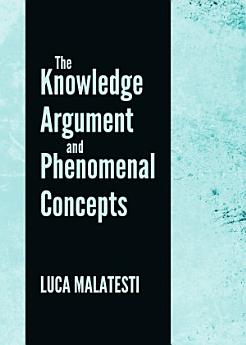The Knowledge Argument and Phenomenal Concepts
Über dieses E-Book
At the heart of this book lies a response to the knowledge argument that aims to defend a version of physicalism, that the author calls modest reductionism. This reply is based on the endorsement of the phenomenal concept strategy. According to this response, the knowledge argument cannot prove that there are non-physical facts. Instead, it can only show that there are ways of thinking about colour experiences that are based on phenomenal concepts that differ from scientific concepts. The author argues for the superiority of the phenomenal concept strategy over other influential physicalist replies to the knowledge argument. However, he criticises some recent physicalist accounts of phenomenal concepts and develops his own distinctive theory of these concepts.





